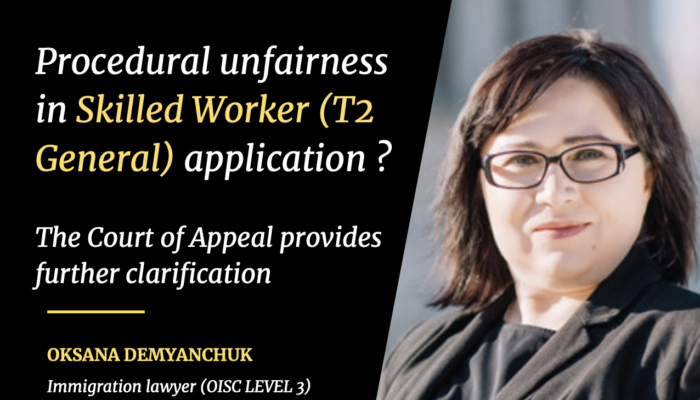How to Get a Divorce in the UK

The procedure of obtaining a divorce in the UK can be complicated and may take a lot of time for both spouses. It can be considered costly from both an emotional and a financial point of view. However, if both sides can reach an agreement, it is greatly simplified. Let’s explore how to get a divorce in the UK, and what needs to be taken into account when processing documents.
Grounds for divorce in the UK
On 6 April 2022, amendments were made to the legislation that relate to the grounds for divorce in the UK. After the new law came into force, one of the spouses can file for a divorce if he or she believes that the relationship can no longer continue. At the same time, the other spouse will not be able to prevent such a decision.
The new and current procedure of divorce in the UK is carried out in several steps with intermittent waiting periods. First, the couple must submit an application to obtain the approval of the judicial authorities to apply for a divorce. In case only one spouse is applying for divorce as a sole applicant, the court will send a copy of the application to the other spouse, who will need to respond within 14 days. After the application is issued by the court, there is a waiting period of 20 weeks before you are allowed to proceed with the second stage.
At the end of the 20-week period, the applicants must apply for a conditional order from the court. This may take several weeks for the court to approve. Following a further 43-day waiting period, you may apply to finalise the divorce.
The long waiting periods are not given by chance. It may take time for the spouses to make a final decision on whether they wish to proceed with the divorce. Within the process of waiting, the decisions can be changed.
The judicial authorities still have the right to influence the resolution of disputes on the common property division. Judges can interfere with regards to the questions of which parent the children will live with.
According to the law previously in force until the spring of 2022, in order to receive a divorce, it was necessary to provide strong reasons. These rules continue to be relevant to applications for divorce that were initially issued by the court before 6 April 2022.
These are the reasons for divorce in UK that were considered sufficient:
- adultery;
- unreasonable behaviour of one of the spouses;
- deliberate desertion;
- Separation for two or five years
Many married couples were interested in the question: how long do you have to be separated before divorce is automatic? If the reason for the divorce process was separation for at least two years, then the spouses were required to provide written confirmation of the same. When separated for at least five years, one of the spouses had the right to file for divorce, even if the other half categorically disagreed.
Provided that the decision was mutual, the husband and wife had to prove that they had been living separately for at least two years. A strong proof was the non-participation in the affairs of the family during this time. If one of the parties objected, the process could in some cases drag on for a prolonged period.
Experts dealing with family law agreed that the old system forced spouses to look for far-fetched accusations against each other. It negatively affected the complex divorce process and introduced misunderstandings into conversations concerning common property division and the future of children.
Procedure of divorce in the UK
To figure out how to start the divorce process and what you need to be prepared for, it is advisable to consult an expert dealing with family law. Get acquainted with the steps to a divorce in the UK from the beginning.
Step one – Filing the divorce application
The first step in divorce is sending an application filled out in a special form to the court for consideration. You can do it:
- online;
- with the help of the postal service.
Sending an application online affects the acceleration of the review procedure.
According to the recently adopted law, when filling out an application, spouses need not indicate the reason for marriage dissolution. In a special column, they just need to put that in their opinion their couple can no longer be together.
When applying for divorce, the following information should be provided:
- full name and actual address of residence;
- wife/husband’s name and address;
- the marriage certificate.
How to start a divorce: if a couple submits an application by mutual consent, then both parties will become Joint Applicants. If one of the spouses submits it, then that person will become the Applicant, and their husband or wife will become the Respondent.
The application must indicate that the marriage is irrevocably terminated. It means that there is no chance of reconciliation or a change of intentions. The package of documents should be sent to the court: a divorce application, a marriage certificate, and a confirmation of payment of the fee.
Step two – Service of the application (sole applications only)
After the start of divorce process in the UK, the judicial authorities record filing a single application and send it to the Respondent. The spouse must fill it out and return it back. The document confirms that the service was rendered.
Step three – Acknowledging service of the application (sole applications only)
The Respondent is obliged to return the completed form to the judicial authorities within 2 weeks after receiving it. The document should indicate whether the spouse wants to challenge the procedure.
If the Respondent does not want a divorce, then they must fill out the “Answer” form. The document must be sent to the court within 35 days.
After the recent amendments to the law came into force, the available grounds for challenging the application changed. Now they include the following ones:
- According to the Respondent, the judicial authorities of England and Wales cannot make a decision on this issue. This may be due to the fact that one of the parties lives outside the state and has nothing to do with it.
- The marriage is considered invalid due to the fact that it has not been officially concluded.
- At the moment, the marriage has already been dissolved.
If a completed application is not received from the Respondent in due time, then the UK divorce laws allow the process to be continued without the participation of the second party.
Step four – Applying for a Conditional Order
According to divorce rules in the UK, provided that the judicial authorities have received all the necessary documentation, a date will be set for the announcement of the Conditional Order. At least 20 weeks must pass from the date of application filing before the conditional order is granted.
The parties may not attend the court session. Everything will be carried out without their participation. An exception is in cases when there is a dispute between the spouses about the expenses reimbursement related to the payment of the fee.
Step five – Application for the Final Order
When 6 weeks have passed after the Conditional Order, both Sole and Joint Applicants have the right to apply for the final order confirming the divorce. This used to be called the Decree Absolute.
The parties concerned fill out a standard application request form for a final decision. After its registration and sealing, the spouses will receive a divorce.
If the request for a final decision is not received from the Applicant, the Respondent has the right to file an application after 3 months.
Step six – Receipt of the Final Order
After receiving a divorce certificate, the former spouses are considered officially divorced. The document is considered to be important. It may be needed in case of remarriage or to resolve any conflicts or disputes. It is recommended to store the certificate in a safe place.
Alternatives to divorce
In practice, there are cases when divorce is impossible. This can be explained by various reasons. For example, where people have been a couple for a very short time, or there are restrictions for cultural or religious reasons. In such circumstances, citizens can use alternative solutions.
Annulment
The application for annulment can be accepted within 3 years after the marriage. It is much easier to receive this than a divorce. The most common reasons are: lack of one of the parties’ consent to the marriage, extramarital pregnancy or fictitious marriage.
Judicial separation
If the marriage cannot be dissolved due to religious or cultural reasons, this option may be recommended. It is also processed in court. A special act is drawn up, which describes the conditions of living together. It also indicates the need to provide financial support to children from each of the parties. The main difference between divorce and separation: during separation, from a legal point of view, the relationship of a married couple is not completely ended.
How long does a divorce take?
After submitting the application, at least 20 weeks must pass before a final decision is made. Even the fastest procedure takes at least six months. Most often, the spouses will need to wait for a resolution from 7-12 months.
How to know when your marriage is over: after the decision is made in court, a divorce notification will be sent to the party’s home address. If for any reason this was not done, it is advisable to contact the district court and request a copy.
How much does it cost to get a divorce?
Cost of a divorce in the UK is £593. Expenses can be divided between spouses. The fee should be paid before submitting the application.
Do I need a lawyer for my divorce?
Even if the divorce procedure seems simple, you may miss the opportunity to exercise your civil rights in full if expert advice is not sought. A divorce solicitor will advise you of all the hidden risks and challenges that may occur. You will receive comprehensive answers to questions that relate to common property, financial condition, and children matters.
How can we help?
We are sure that with the help of a professional solicitor, marriage dissolution can be as simple and understandable as possible. Save yourself from stress and hidden risks by using the services of divorce lawyer in London at Sterling Law. We will make sure that you receive the necessary information and support at all stages.














